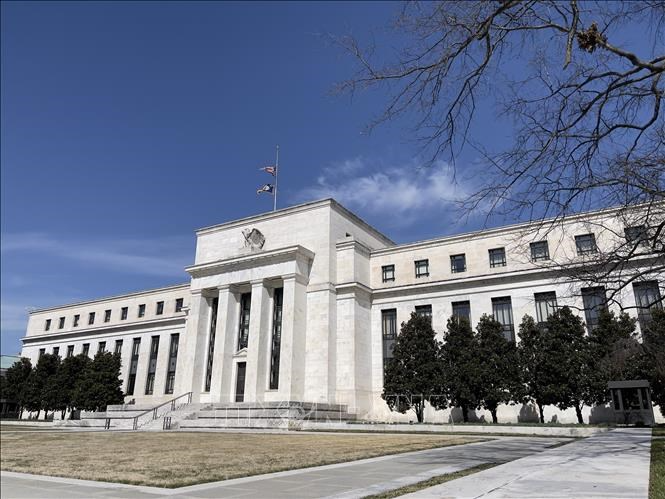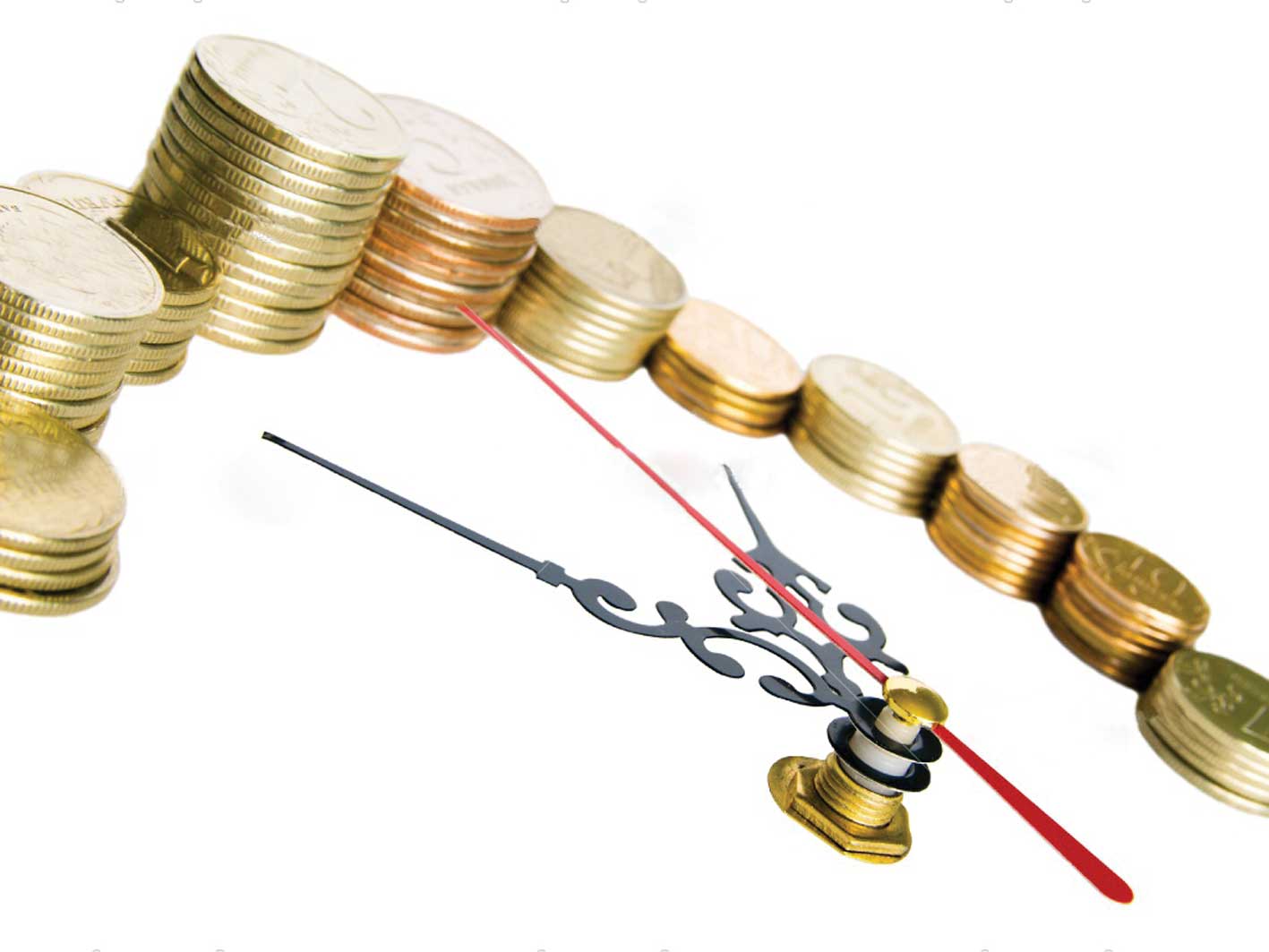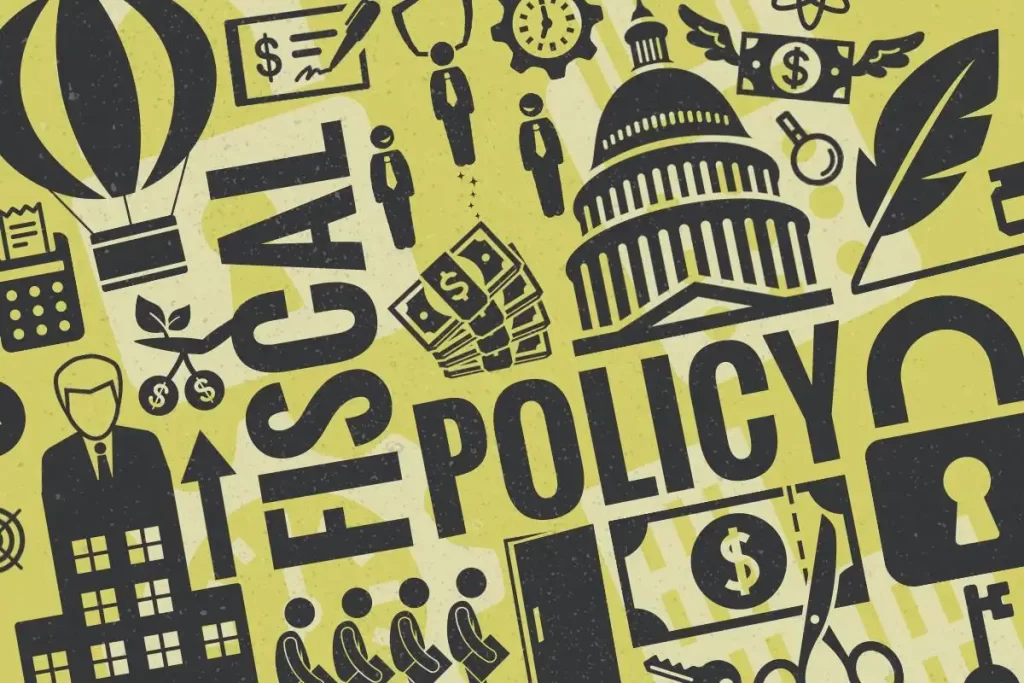Fiscal policy and monetary policy are two important tools of the State in regulating the economy. Both policies have different goals and ways of operating, but both aim to promote economic growth, stabilize the macro economy and ensure social security. In the current context, when the world economy is growing strongly and facing many challenges, understanding the differences and importance of fiscal policy and monetary policy is essential.
Table of contents
- Difference between fiscal policy and monetary policy
- The importance of monetary and fiscal policy
- How fiscal policy and monetary policy work
- The influence of financial policy and monetary policy on the economy
- Similarities and differences between fiscal policy and monetary policy
- The necessity of balancing fiscal policy and monetary policy
- Challenges in implementing fiscal and monetary policy
- Factors affecting the effectiveness of fiscal policy and monetary policy
- The role of financial policy and monetary policy in economic development
- Strategies to achieve balance between fiscal policy and monetary policy
- Conclude
Difference between fiscal policy and monetary policy

Financial policy is a system of tools and measures that the State uses to influence the economy by using the State’s financial resources. The tools of fiscal policy include public expenditure, budget revenue and tax policy. Meanwhile, monetary policy is a system of tools and measures that the Central Bank uses to influence the economy by regulating money supply and interest rates. Monetary policy tools include the required reserve ratio and interest rate policy.
Public spending
Public spending is the main tool of fiscal policy. Through public spending, the State can influence aggregate demand in the economy, thereby promoting economic growth. Public spending is done through payments for public projects, infrastructure investment and other State expenditures. Increasing public spending can help increase demand in the economy, create more jobs and promote production and business activities. However, increased public spending can also cause inflation and public finance problems.
Revenue
Budget revenue is the financial source for the State to carry out public spending. Through budget revenue, the State can regulate the level of currency circulation in the economy. Increasing budget revenue can help increase money supply in the economy, thereby reducing interest rate pressure and promoting production and business activities. However, increased budget revenue can also cause instability in financial markets and affect exchange rates.
Policy of tax
Tax is an important tool of fiscal policy. Through taxes, the State can influence the income, spending and investment of individuals and businesses. Tax adjustments can help increase budget revenue and balance the State budget. However, imposing taxes that are too high can reduce the production and investment motivation of businesses, affecting the development of the economy.
Required reserve ratio
The required reserve ratio is the percentage of deposits that commercial banks must deposit back to the Central Bank. This is to ensure the stability of the banking system and help the Central Bank regulate the money supply in the economy. Increasing the required reserve ratio can help curb inflation and create stability for financial markets. However, increasing the required reserve ratio can also reduce the lending capacity of banks and affect the business operations of businesses.
Interest rate policy
Interest rate policy is an important tool of monetary policy. Through adjusting interest rates, the Central Bank can influence the lending and consumption activities of people and businesses. Increasing interest rates can help curb inflation and limit risks in financial activities. However, increasing interest rates can also reduce consumption and investment of people and businesses, affecting economic growth.
The importance of monetary and fiscal policy

Monetary and fiscal policy are two of the government’s important tools to run a country’s economy. This policy plays a decisive role in the stability and development of the economy, directly affecting the lives of people and businesses.
Monetary policy is the adjustment of the amount of money in the economy through measures such as adjusting interest rates, exchange rates or buying and selling bonds. Meanwhile, fiscal policy is the management of the government’s budget, including tax collection and public spending. These two policies are closely linked and together create an effective economic management mechanism.
One of the important effects of monetary and fiscal policy is to ensure stability for the economy. When policies are implemented properly, the economy will maintain a stable inflation level, helping people and businesses predict the future economic situation. This will create favorable conditions for production, business and investment activities, thereby promoting the development of the economy.
In addition, monetary and fiscal policy also play an important role in maintaining trade balance and accounts with the outside world. Monetary policy helps adjust exchange rates to ensure the country’s import and export of goods and services are not distorted, while creating a favorable environment for export activities and attracting foreign investment. Meanwhile, fiscal policy helps control government spending, avoid budget deficits and public debt, thereby ensuring financial stability for the country.
Monetary and fiscal policy also play an important role in supporting growing economic sectors. The government can use monetary and fiscal policies to provide incentives and support for emerging economic sectors, which play an important role in promoting the country’s development. This helps balance economic development between regions, while creating healthy competition between businesses in the same industry.
However, for monetary and fiscal policy to be effective, the most important factor is the country’s political stability and economic stability. Without this stability, monetary and fiscal policies will also face many difficulties in implementation and will not bring expected results.
Overall, monetary and fiscal policy play a very important role in running a country’s economy. This policy not only affects the stability and development of the economy, but also has a direct impact on the lives of people and businesses. Therefore, the government needs to make appropriate decisions and measures to apply monetary and fiscal policies in the most effective way, contributing to helping the country become a sustainably developed economy.
How fiscal policy and monetary policy work

Fiscal policy and monetary policy both have the goal of regulating the economy, but the way these two policies work is different.
Operation of financial policy
Fiscal policy operates through the use of tools such as public spending, budget revenue and tax policy to regulate aggregate demand in the economy. When the State increases public spending, aggregate demand in the economy will increase, thereby promoting economic growth. However, increased public spending can also cause inflation and unbalanced public finances. To solve this problem, the State can increase budget revenue and adjust tax policy to balance the budget and curb inflation.
Operation of monetary policy
Monetary policy works through the use of tools such as the required reserve ratio and interest rate policy to regulate money supply and interest rates in the economy. When the Central Bank increases the required reserve ratio, commercial banks will have to retain more deposits at the Central Bank, thereby reducing the money supply and curbing inflation. However, increasing the required reserve ratio can also reduce the lending capacity of banks and affect the business operations of businesses. To solve this problem, the Central Bank can adjust interest rate policy to create balance for the financial market.
The influence of financial policy and monetary policy on the economy

Both fiscal policy and monetary policy have a great influence on the economy. Fiscal policy can impact aggregate demand and economic growth, while monetary policy can control inflation and create stability for financial markets. However, the implementation of these two policies can also cause unwanted impacts on the economy.
Positive impact of fiscal policy and monetary policy
When fiscal policy and monetary policy are implemented effectively, it can create positive impacts on the economy. Fiscal policy helps increase public spending and budget revenue, thereby promoting economic growth and balancing the State budget. Meanwhile, monetary policy helps curb inflation and create stability for the financial market, helping to increase the confidence of investors and businesses.
Negative impacts of financial policy and monetary policy
However, the implementation of fiscal policy and monetary policy can also cause negative impacts on the economy. Excessive increases in public spending can lead to inflation and unbalanced public finances. Meanwhile, increasing the required reserve ratio and too high interest rates can reduce the lending capacity of banks and affect the business operations of businesses.
Similarities and differences between fiscal policy and monetary policy
Similarities
Both fiscal policy and monetary policy have the goal of regulating the economy and ensuring economic stability. Both policies use tools to influence economic factors such as money supply, interest rates and public spending.
Differences
A key difference between fiscal policy and monetary policy is the goals of these two policies. Fiscal policy focuses on regulating public spending and budget revenues, while monetary policy focuses on regulating money supply and interest rates.
The necessity of balancing fiscal policy and monetary policy
Balancing between financial policy and monetary policy is essential to ensure the stability and sustainable development of the economy. If fiscal policy and monetary policy are not balanced, it can lead to negative impacts on the economy such as inflation, unbalanced public finances and financial market instability. .
Challenges in implementing fiscal and monetary policy
Implementing fiscal and monetary policy is not easy, there are challenges that need to be overcome.
The challenge of precision and flexibility
Making decisions about financial and monetary policy requires precision and flexibility. Managers need to have knowledge and experience to make accurate and appropriate decisions with the current economic situation. At the same time, they also need to be able to adjust policies over time to respond to economic fluctuations.
Challenges about the influence of external factors
In addition to factors in the economy, financial policy and monetary policy also face the influence of external factors such as fluctuations in international financial markets, oil prices and political situations. international. This can make policy implementation more complex and difficult.
Factors affecting the effectiveness of fiscal policy and monetary policy
The effectiveness of fiscal and monetary policy depends on many factors, including:
Current economic status
The current economic situation will affect the effectiveness of fiscal and monetary policy. If the economy is in a recession, implementing these policies may be more difficult.
Political stability
Political stability is also an important factor affecting the effectiveness of fiscal and monetary policy. If there are major political fluctuations, the implementation of these policies may be affected and not achieve the expected results.
Compatibility with the economic situation
Policy decisions need to be appropriate to the current economic situation. If policies are not appropriate, it can lead to negative impacts on the economy.
The role of financial policy and monetary policy in economic development
Fiscal policy and monetary policy play an important role in promoting economic development. Fiscal policy helps increase public spending and budget revenue, thereby promoting economic growth and balancing the State budget. Meanwhile, monetary policy helps curb inflation and create stability for the financial market, helping to increase the confidence of investors and businesses.
Strategies to achieve balance between fiscal policy and monetary policy
To achieve a balance between fiscal policy and monetary policy, there are several strategies that can be applied:
Enhance cooperation between management agencies
Cooperation between regulatory agencies such as the Central Bank and the Ministry of Finance is crucial in making policy decisions. This helps ensure consistency and effectiveness of policies.
Provide policies appropriate to the economic situation
Introducing policies appropriate to the current economic situation is very important to ensure policy effectiveness. Policies need to be adjusted and flexible to suit economic fluctuations.
Control inflation and unbalanced public finances
Controlling inflation and unbalanced public finances is one of the important factors to achieve balance between fiscal policy and monetary policy. This helps ensure the stability and sustainability of the economy.
Conclude
Fiscal policy and monetary policy play an important role in regulating and ensuring the stability of the economy. However, the implementation of these two policies can also cause unwanted impacts on the economy. Therefore, balancing between fiscal policy and monetary policy is essential to ensure sustainable development of the economy. To achieve this balance, there needs to be cooperation between management agencies, devising policies appropriate to the economic situation and controlling inflation and unbalanced public finances.

